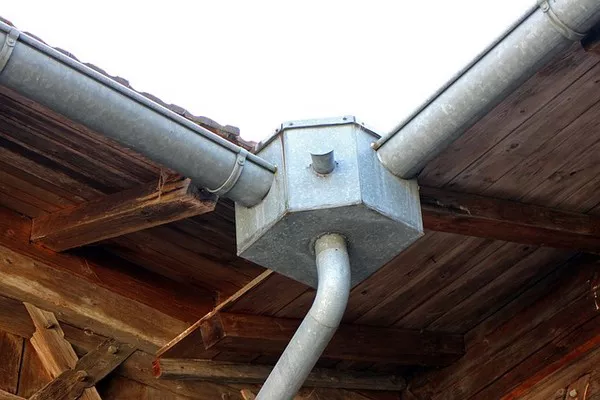Wastewater is a broad term encompassing various types of water that have been used and contaminated during human activities. It is a critical environmental concern due to its potential impact on public health and the ecosystem. Understanding the different types of wastewater is essential for effective treatment and management strategies. This article provides a comprehensive overview of the diverse categories of wastewater, their sources, characteristics, and environmental implications.
1. Domestic Wastewater
Domestic wastewater, also known as sewage, originates from households and includes water from toilets, sinks, showers, and laundry. It contains a combination of organic matter, nutrients (like nitrogen and phosphorus), pathogens (such as bacteria and viruses), and suspended solids. Domestic wastewater is typically transported through sewer systems to treatment plants for processing before discharge into water bodies or reuse.
2. Industrial Wastewater
Industrial wastewater is generated from manufacturing processes, chemical production, power generation, mining, and other industrial activities. The composition of industrial wastewater varies widely depending on the industry but often contains pollutants like heavy metals, solvents, oils, acids, and toxic chemicals. Industrial wastewater poses complex treatment challenges due to its diverse and sometimes hazardous constituents.
3. Agricultural Wastewater
Agricultural activities produce significant volumes of wastewater, primarily from irrigation, livestock operations, and crop processing. Agricultural wastewater contains organic matter, pesticides, fertilizers, and pathogens. Runoff from agricultural fields can also carry sediment and nutrients into water bodies, contributing to eutrophication and water quality degradation.
4. Stormwater Runoff
Stormwater runoff occurs when rainwater flows over impervious surfaces, picking up pollutants such as oils, sediments, debris, and chemicals from urban and industrial areas. Unlike sewage, stormwater is not typically treated before entering water bodies, leading to contamination of rivers, lakes, and coastal areas. Effective stormwater management strategies are crucial for mitigating pollution and flooding.
5. Commercial Wastewater
Commercial establishments like restaurants, hotels, and shopping malls generate wastewater from kitchens, bathrooms, and cleaning activities. This wastewater can contain fats, oils, grease, detergents, and food residues. Proper management of commercial wastewater is important to prevent sewer blockages and reduce the impact on municipal treatment systems.
6. Leachate
Leachate is a type of wastewater that forms when water percolates through solid waste in landfills, extracting dissolved and suspended contaminants. Leachate can contain organic and inorganic pollutants, heavy metals, and hazardous chemicals, posing a risk to groundwater and surface water quality if not managed properly.
7. Reclaimed Wastewater
Reclaimed or recycled wastewater refers to treated wastewater that is reused for non-potable purposes such as irrigation, industrial processes, and groundwater recharge. Reclaimed water undergoes advanced treatment to meet specific quality standards, reducing reliance on freshwater resources and minimizing environmental impact.
8. Thermal Wastewater
Thermal wastewater results from industrial processes that involve water for cooling or heating purposes. Power plants, refineries, and manufacturing facilities often discharge heated water into nearby water bodies, affecting aquatic ecosystems and biodiversity. Thermal pollution can lead to reduced oxygen levels and altered habitat conditions.
9. Radioactive Wastewater
Radioactive wastewater contains radioactive isotopes from nuclear power plants, research facilities, and medical institutions. Proper containment and treatment of radioactive wastewater are crucial to prevent environmental contamination and protect human health.
Environmental Impacts of Wastewater
The discharge of untreated or inadequately treated wastewater can have severe environmental consequences:
Water Pollution: Wastewater introduces pollutants that degrade water quality, harm aquatic life, and impair ecosystems.
Nutrient Enrichment: Excessive nutrients like nitrogen and phosphorus from wastewater can cause eutrophication, leading to algal blooms and oxygen depletion.
Health Risks: Pathogens in wastewater pose health risks to humans and animals, especially in untreated or poorly treated water.
Habitat Degradation: Thermal pollution, chemical contamination, and altered water quality can disrupt aquatic habitats and biodiversity.
Wastewater Treatment and Management
Proper treatment and management of wastewater are essential to minimize its environmental impact. Common wastewater treatment processes include:
Preliminary Treatment: Screening and grit removal to remove large debris and sediment.
Primary Treatment: Physical processes like sedimentation to separate solids and liquids.
Secondary Treatment: Biological processes (e.g., activated sludge, trickling filters) to remove organic contaminants.
Tertiary Treatment: Advanced processes (e.g., filtration, disinfection) to remove remaining pollutants for safe discharge or reuse.
In addition to treatment, sustainable wastewater management practices include source control, pollution prevention, water reuse, and stormwater management strategies.
See Also What Defines a Type 3 Septic System? A Comprehensive Guide
Conclusion
Wastewater management is a critical aspect of environmental stewardship and public health. By understanding the different types of wastewater and their characteristics, stakeholders can develop targeted strategies for treatment, reuse, and pollution prevention. Sustainable wastewater management requires collaborative efforts among governments, industries, communities, and individuals to protect water resources and promote a healthier, more resilient environment for future generations.

